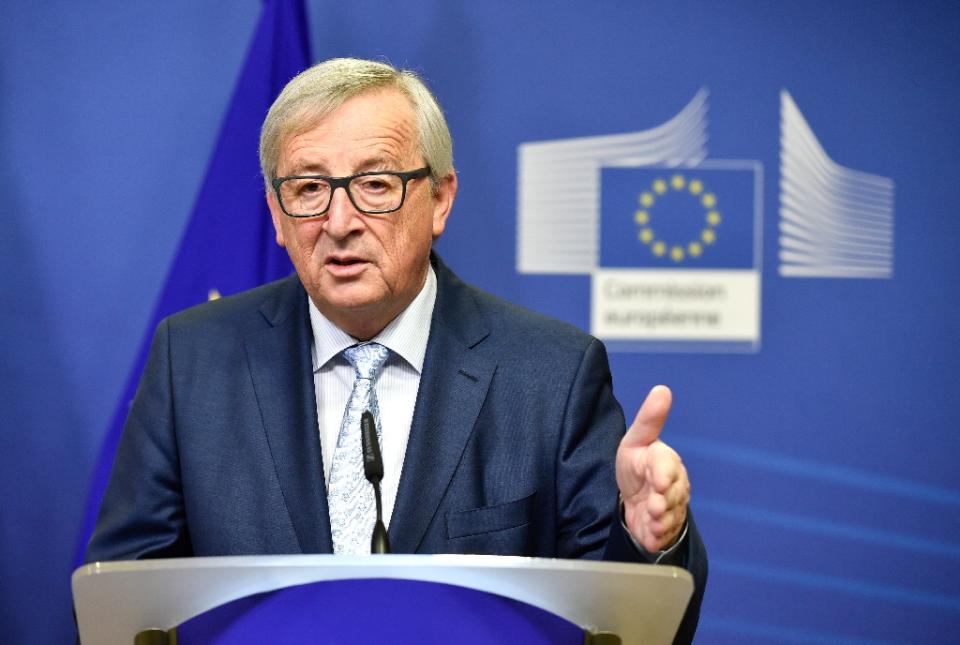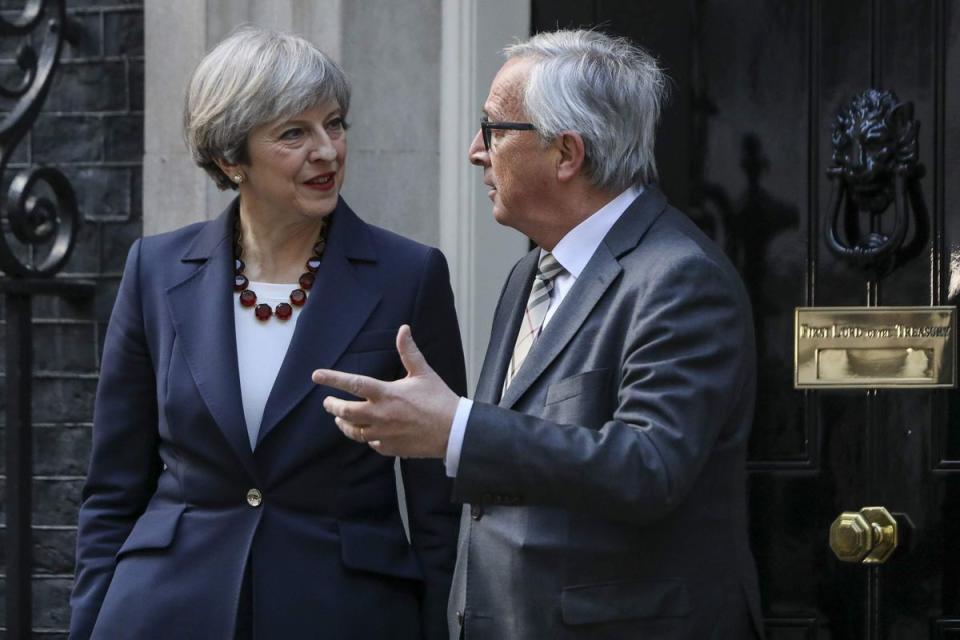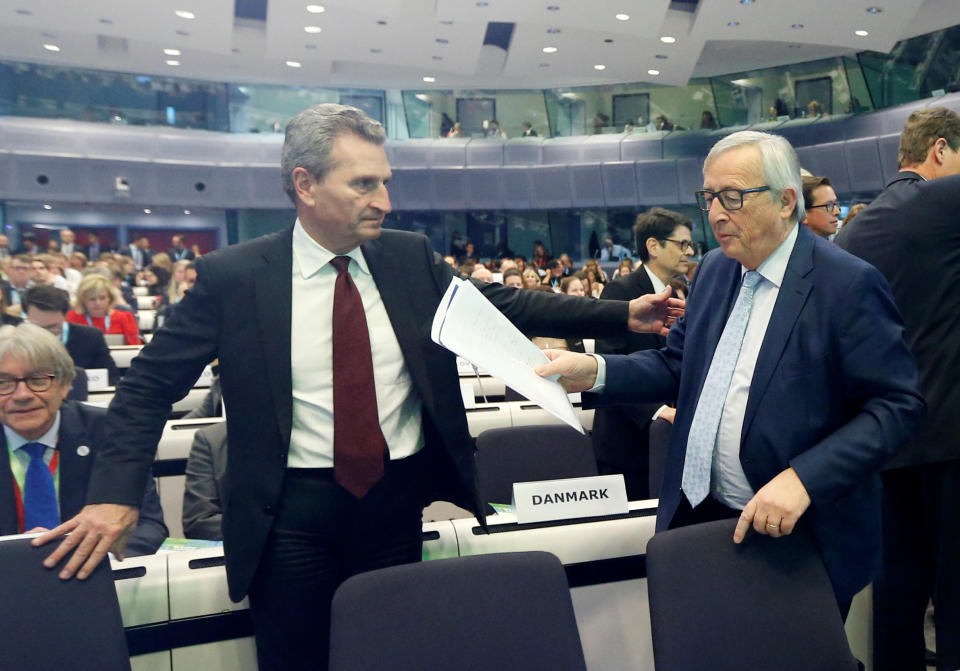Brexit will leave a €13 billion budget hole, Europe chief Juncker admits

Brexit will leave a €13 billion hole in the EU budget, Jean-Claude Juncker has admitted.
The European Commission chief said the remaining nations would have to stump up billions more to cover the UK’s contribution to the budget.
He dismissed talk the UK could yet stay in the European Union as he said that after 2020, when the current budget cycle concludes, more would be needed to fill a Brexit void and meet growing needs on defence, migration and climate change.
MORE: Brexit: consumers could bear the brunt of upfront VAT bills on UK firms
“We need more than 1% of European GDP, quite clearly, if we are to pursue European policies and fund them adequately,” Juncker told a conference in Brussels.
“It costs the European taxpayer one cup of coffee a day. Europe is worth more than one cup of coffee a day.”

Brussels has proposed increasing contributions from 1% of GDP in the 2014-2020 budget to 1.1% of GDP in the next multi-year budget following Britain’s departure.
EU budget commissioner Guenther Oettinger of Germany said that Britain’s departure would leave a hole of €12-€13 billion, and backed Juncker’s call for a bigger share of Europe’s GDP to go towards the EU.
“I’m not talking about two or three per cent. Just 1.1 something. That is what I’m fighting for,” Oettinger told the same conference.
He warned that “big cuts” will be needed in some programmes even as his commission called for fresh revenue.
MORE: City of London says Brexit job fears may be over-egged
New demands included fighting terrorism, protecting borders as migrants surge to Europe’s shores and building a common European defence, spending more on research and making the bloc’s economy more competitive in the digital age.
He will be pressing his case to the remaining 27 members of the bloc over the coming months.
British prime minister Theresa May has pledged that the UK will fulfill its commitment to the current budget beyond Brexit day in March next year to cover a near two-year transition period.
Many hardline Brexiters have argued that Britain should walk away, owing nothing, if trade talks fail to deliver for businesses and consumers.

Juncker warned against believing speculation that Britain might rethink its decision and hold another referendum, saying “Brexit will happen”.
He added: “Our working hypothesis is that our British friends will leave us on the morning of March 30, 2019 and so by then we have to find the means to respond to losing a lot of billions of euros.”
MORE: Brexit: UK looks to secure trans-Pacific trade deal
Various EU regions that will be hardest hit by Brexit have called on Brussels to create a special “hardship fund”.
Submissions from across the continent have urged financial measures to be put in place to mitigate the impact of the UK leaving the trading bloc.
“If the EU establishes a special fund for local cities and regions, it will be a good measure to avoid any negative consequences of Brexit in other EU countries,” wrote Stavros Stavrinides, the official who responded to the Committee of the Regions questionnaire for the Strovolos municipality in Cyprus, for example.

 Yahoo Movies
Yahoo Movies 
